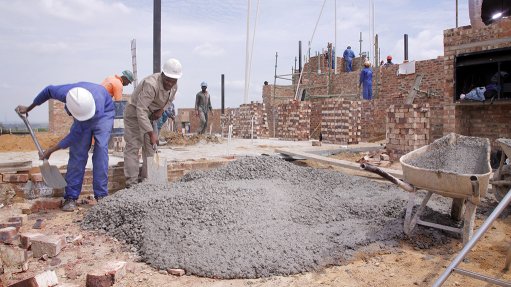Science gets a boost as SKA gains traction
Square Kilometre Array (SKA) project director Dr Bernie Fanaroff has called on IBM to relocate some of its research capacity to South Africa.
This week, SKA South Africa announced that it had partnered with IBM and the Netherlands Institute for Radio Astronomy (Astron) to develop a high-speed exascale computing system to support the SKA radio telescope.
The four-year project would see scientists working together remotely and at an Astron and IBM Centre for Exascale Technology in the Netherlands.
But Fanaroff says he would persuade IBM to take this further.
“We want to persuade IBM that it should be relocating some of its research capacity here in South Africa,” he told Engineering News Online.
“Ultimately, we’d like them to build a research laboratory in South Africa.”
He said the University of Cape Town, the University of the Western Cape and Stellenbosch University were well placed for this, as they had stepped up their research and work on the SKA project, and South Africa had shown that its scientists were world-class.
Fanaroff said he was excited about the initiative with Astron and IBM.
“Big data will give rise to an entirely new industry,” he earlier told the South African National Energy Association, in Cape Town. “We’re looking for faster chips that use less energy.”
Fanaroff said the SKA would be 100 times more sensitive than anything South Africa had seen and would survey the whole sky.
“The SKA will look at big patches of sky, so in one day you could use an exabyte of data. The data will also need to be processed without buffering.”
The SKA project would enable data, which could help answer some of the mysteries of the universe, to be collected.
“We want to understand how galaxies form…how the Milky Way and elliptical galaxies form and cluster together. We want to understand how the first stars and black holes were formed. We also want to understand the structure of the universe.”
Fanaroff said the SKA radio telescope would enable scientists to detect very weak extraterrestrial signals and would search for complex molecules – “the building blocks of life” – in space.
Work around the SKA radio telescope was hotting up on a range of fronts, with scientists flocking to South Africa and research and planning taking off.
Buoyed by the African involvement in the SKA, Fanaroff said astronomy was now being taught in Ghana, Madagascar and Mauritius for the first time.
Three thousand satellite dishes, the size of three-storey buildings, would be set up mainly in the Karoo, but also as far as away Kenya and Ghana.
“Hosting the world’s largest scientific infrastructure is already changing the way people see us,” Fanaroff said.
Since South Africa’s co-hosting of the SKA was announced in May last year, interest has been sparked in science and engineering.
“We’re getting kids interested in astronomy. We want to create a critical mass of young engineers and scientists involved in big data and in digital signal processing. Already, we’re seeing a lot of scientists coming home from being abroad."
Comments
Press Office
Announcements
What's On
Subscribe to improve your user experience...
Option 1 (equivalent of R125 a month):
Receive a weekly copy of Creamer Media's Engineering News & Mining Weekly magazine
(print copy for those in South Africa and e-magazine for those outside of South Africa)
Receive daily email newsletters
Access to full search results
Access archive of magazine back copies
Access to Projects in Progress
Access to ONE Research Report of your choice in PDF format
Option 2 (equivalent of R375 a month):
All benefits from Option 1
PLUS
Access to Creamer Media's Research Channel Africa for ALL Research Reports, in PDF format, on various industrial and mining sectors
including Electricity; Water; Energy Transition; Hydrogen; Roads, Rail and Ports; Coal; Gold; Platinum; Battery Metals; etc.
Already a subscriber?
Forgotten your password?
Receive weekly copy of Creamer Media's Engineering News & Mining Weekly magazine (print copy for those in South Africa and e-magazine for those outside of South Africa)
➕
Recieve daily email newsletters
➕
Access to full search results
➕
Access archive of magazine back copies
➕
Access to Projects in Progress
➕
Access to ONE Research Report of your choice in PDF format
RESEARCH CHANNEL AFRICA
R4500 (equivalent of R375 a month)
SUBSCRIBEAll benefits from Option 1
➕
Access to Creamer Media's Research Channel Africa for ALL Research Reports on various industrial and mining sectors, in PDF format, including on:
Electricity
➕
Water
➕
Energy Transition
➕
Hydrogen
➕
Roads, Rail and Ports
➕
Coal
➕
Gold
➕
Platinum
➕
Battery Metals
➕
etc.
Receive all benefits from Option 1 or Option 2 delivered to numerous people at your company
➕
Multiple User names and Passwords for simultaneous log-ins
➕
Intranet integration access to all in your organisation


















